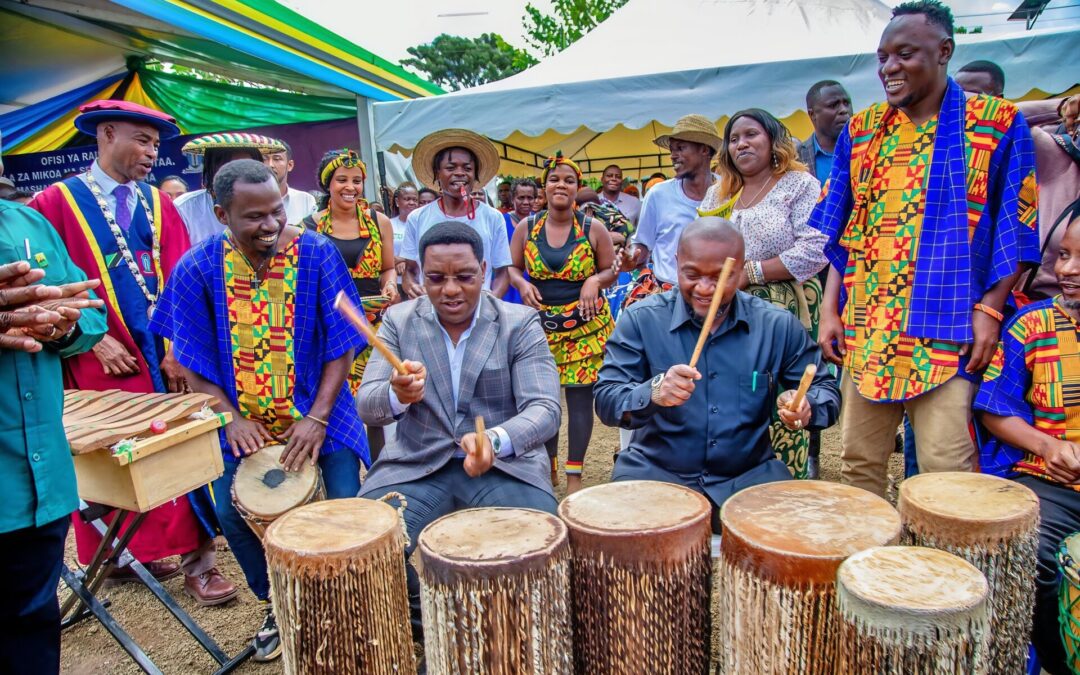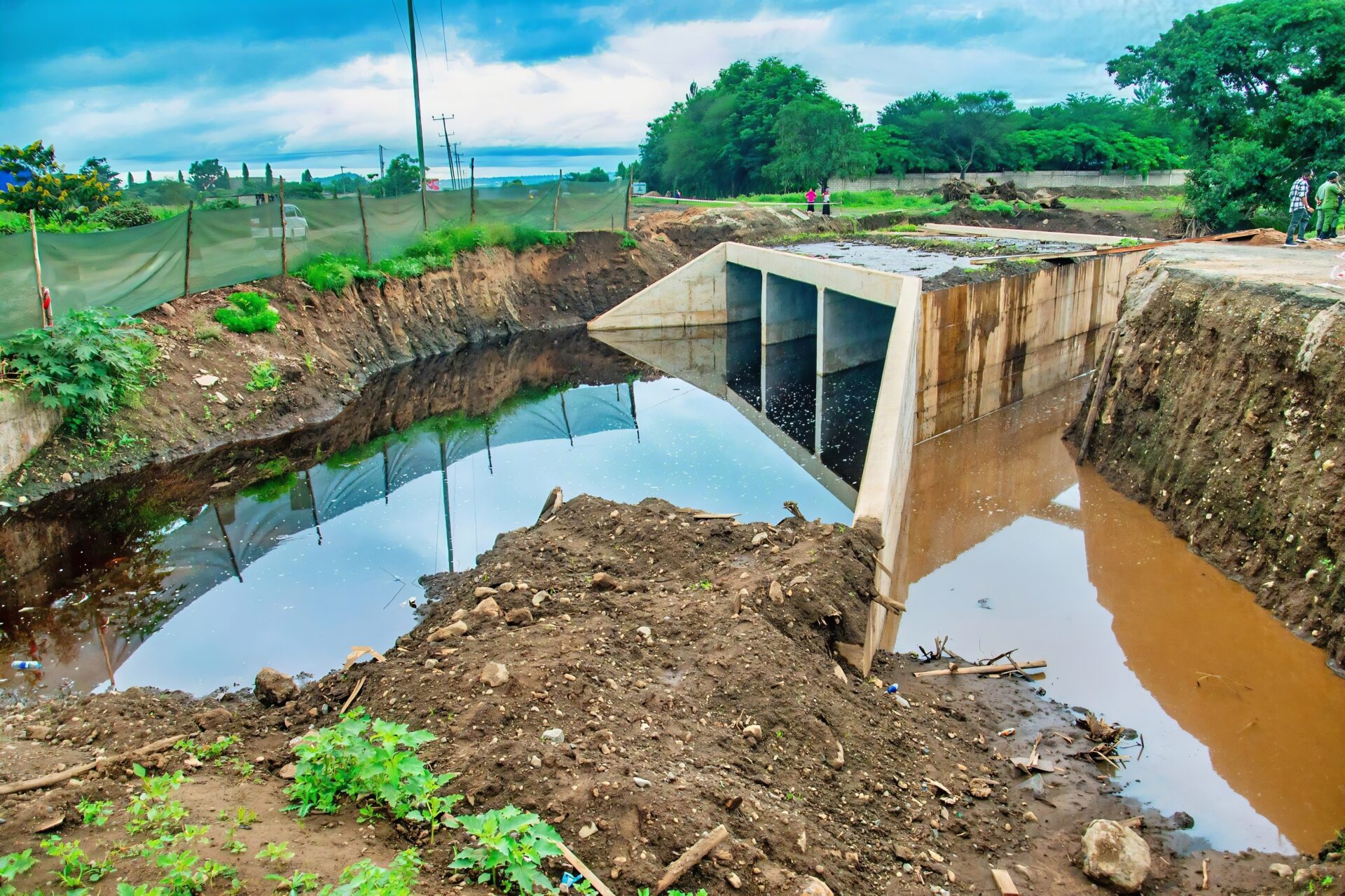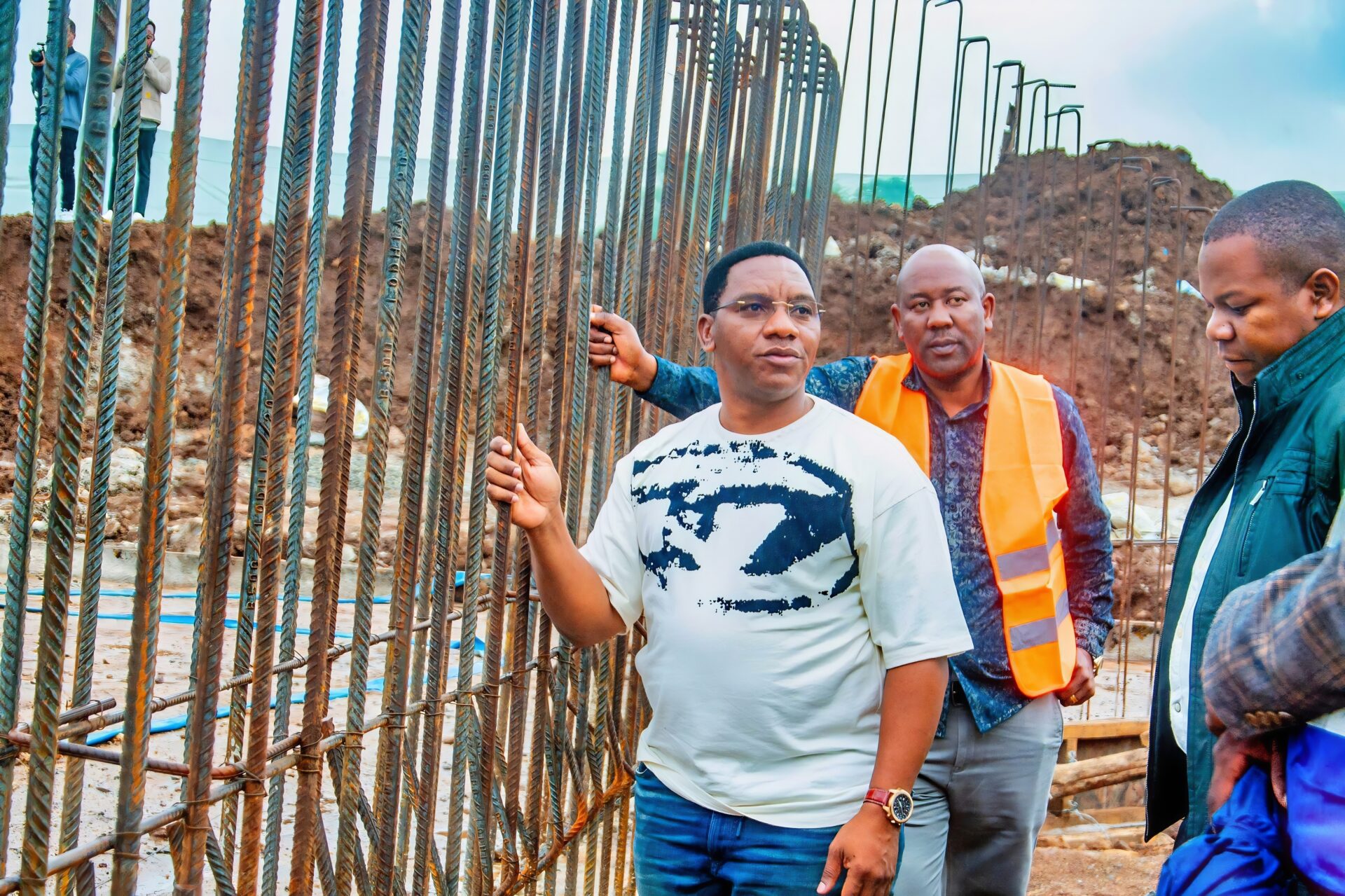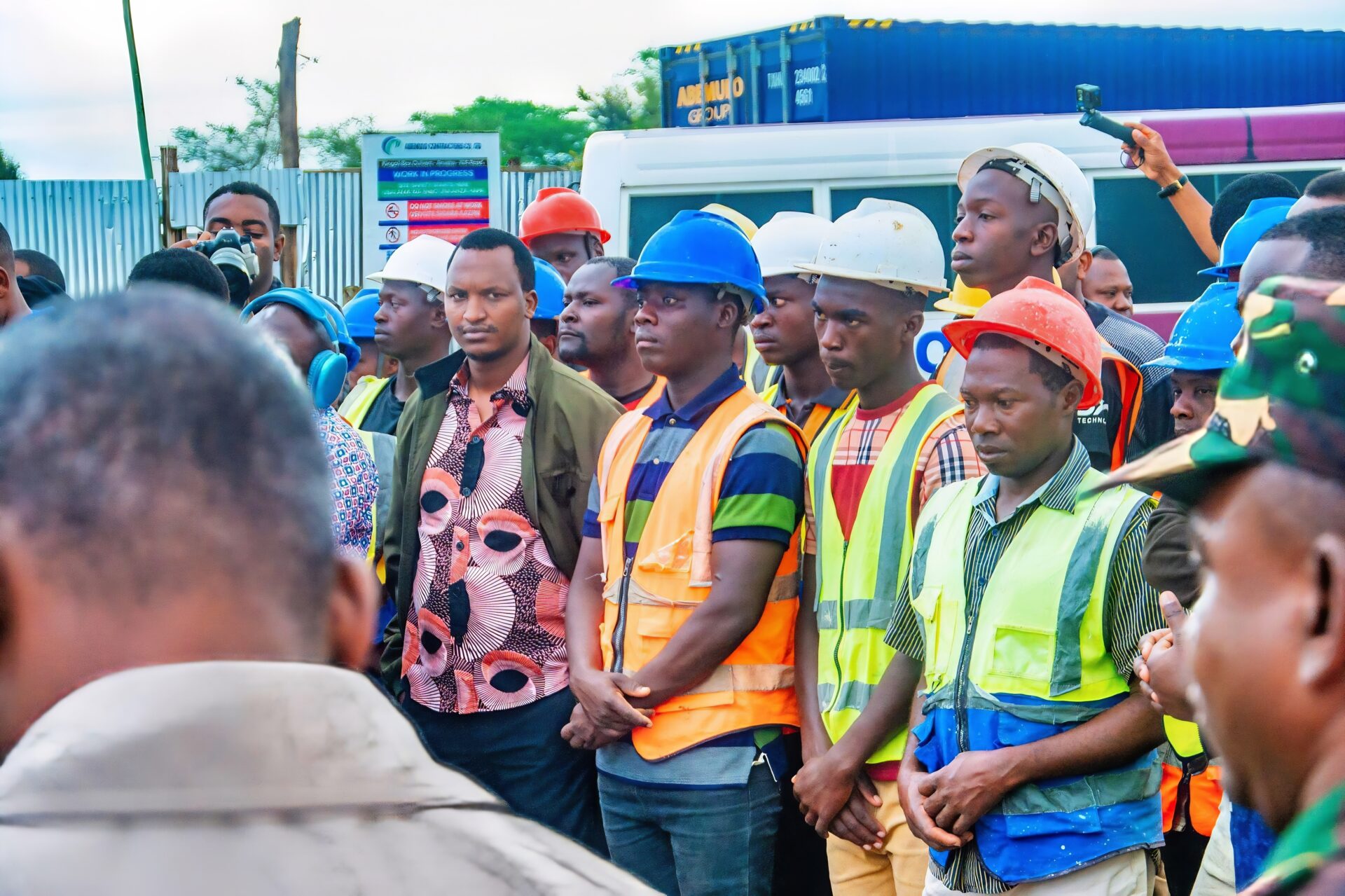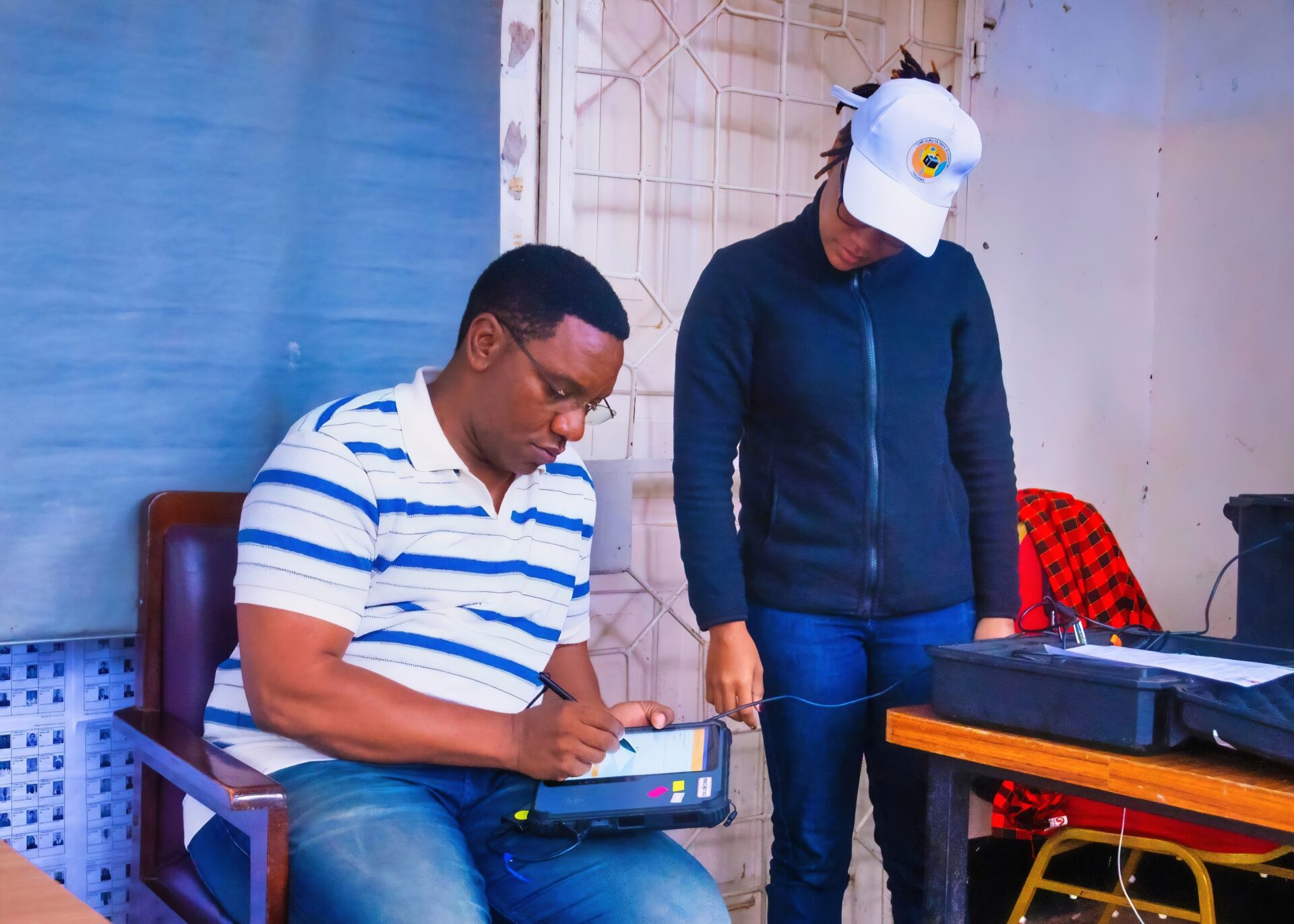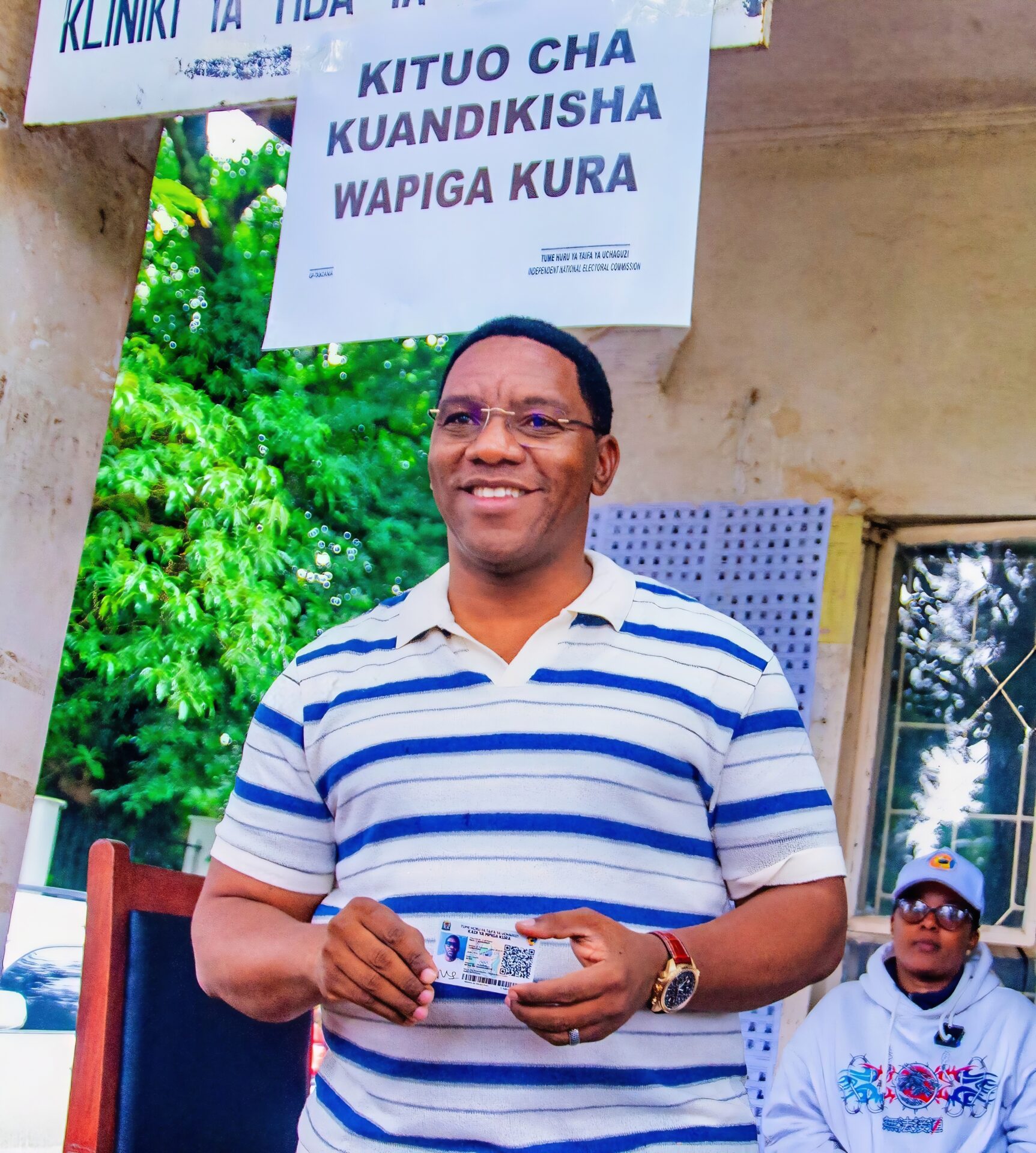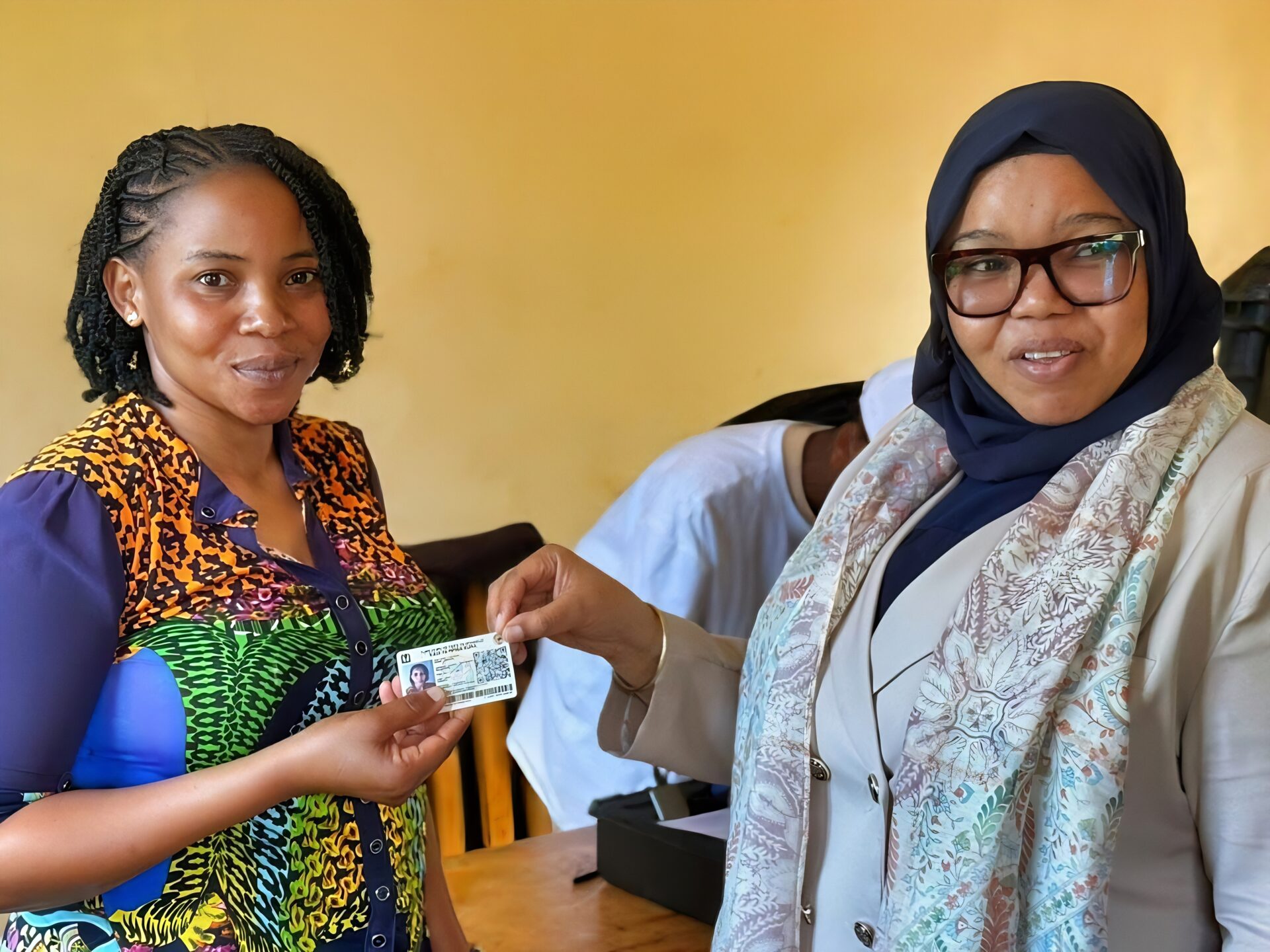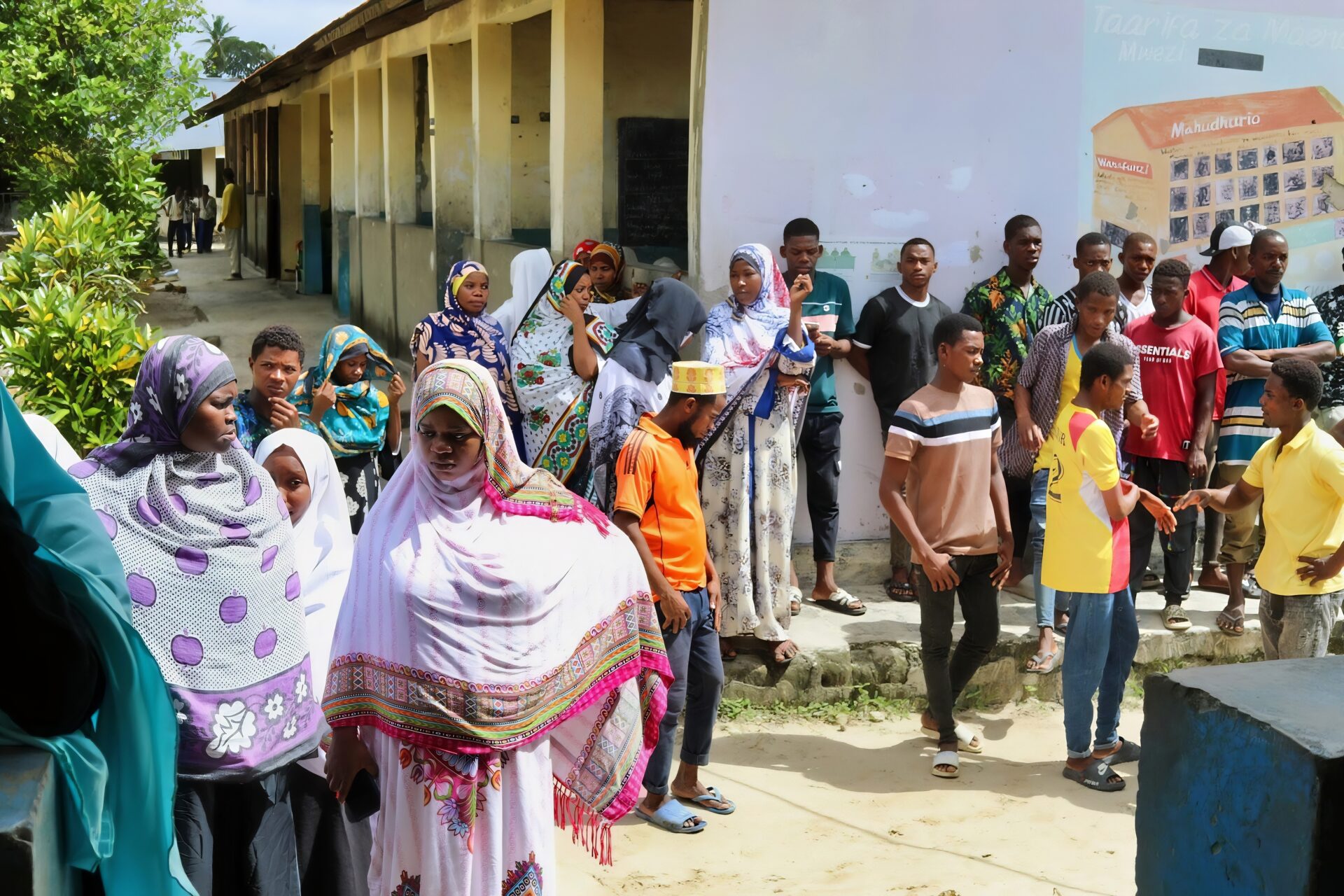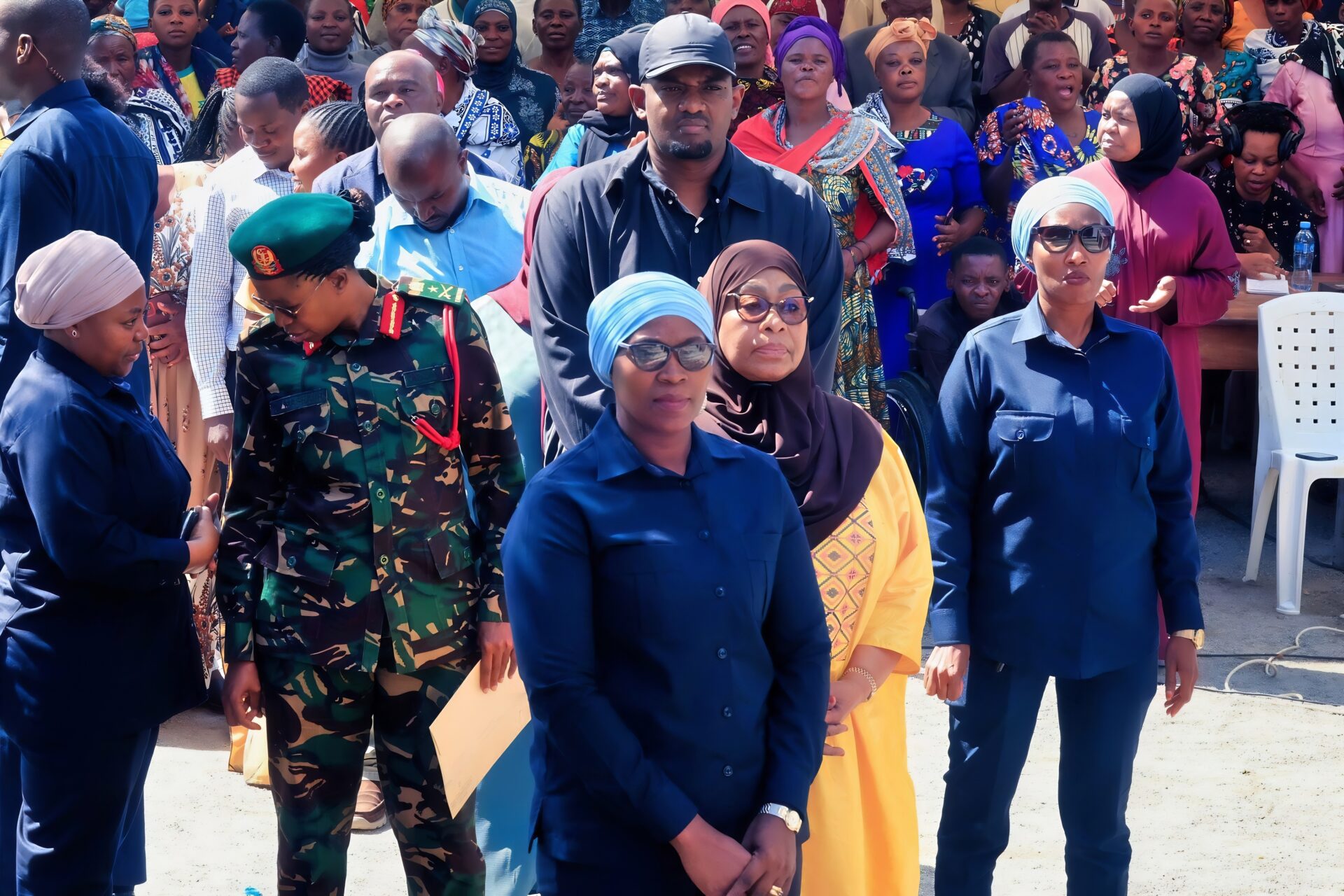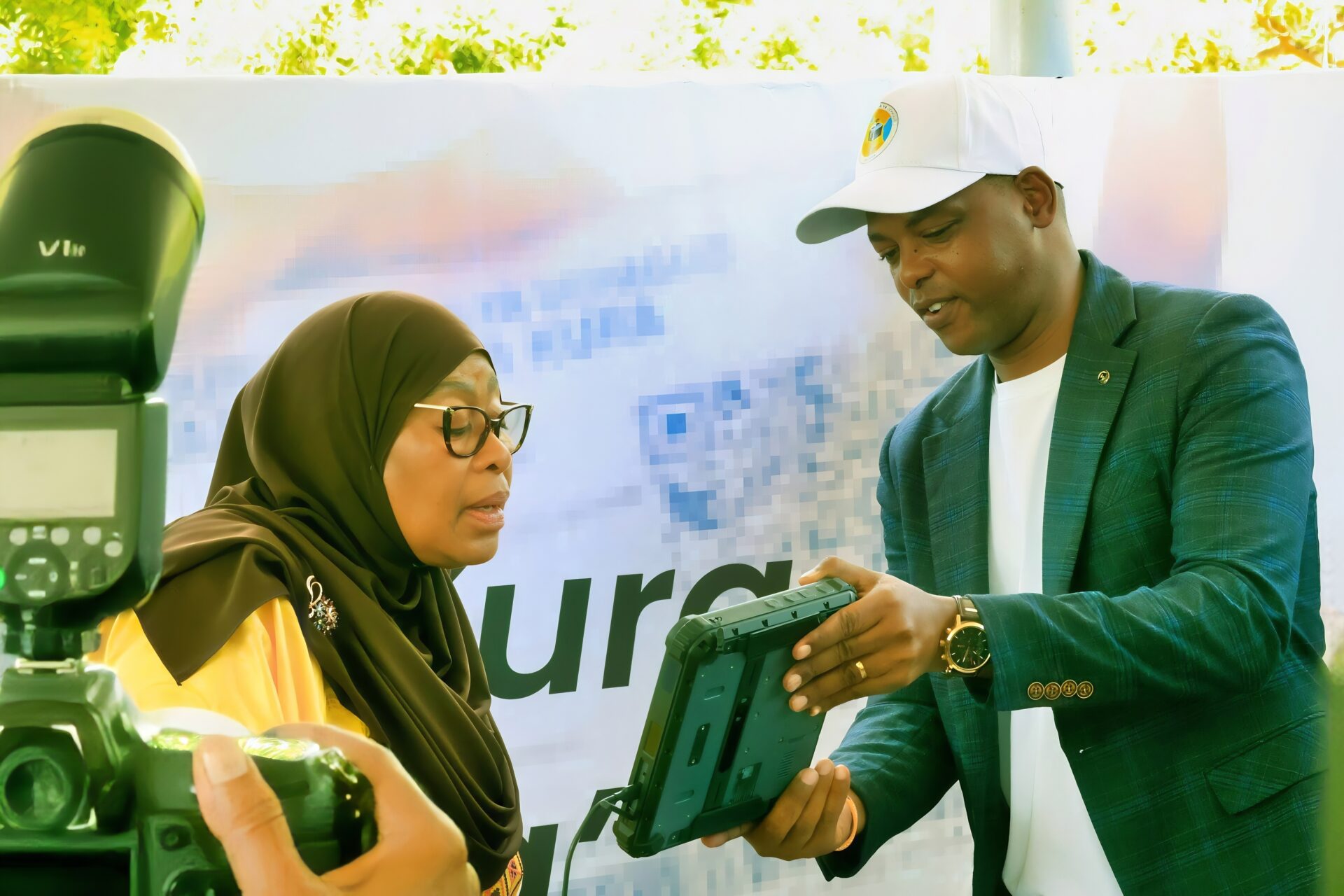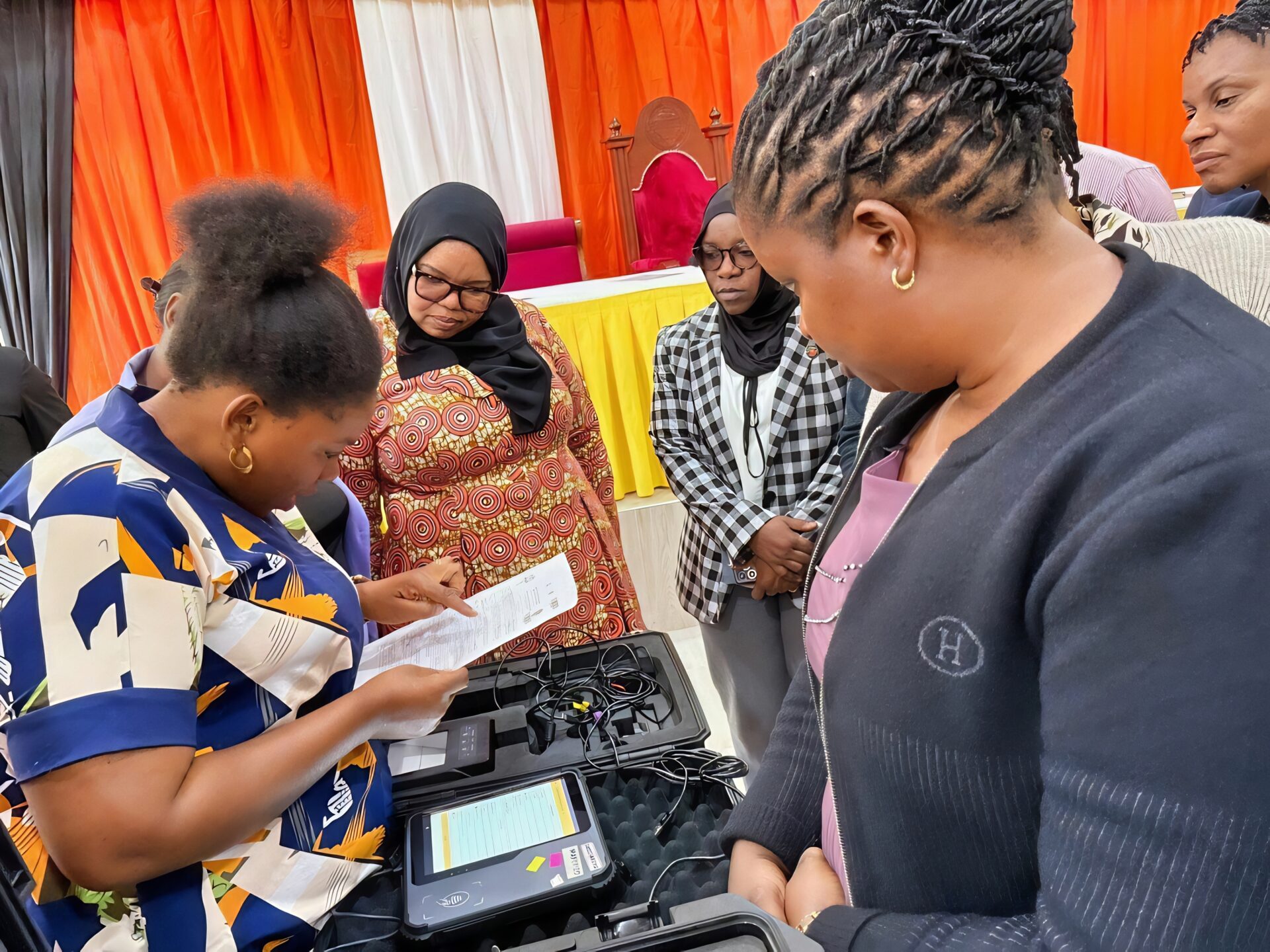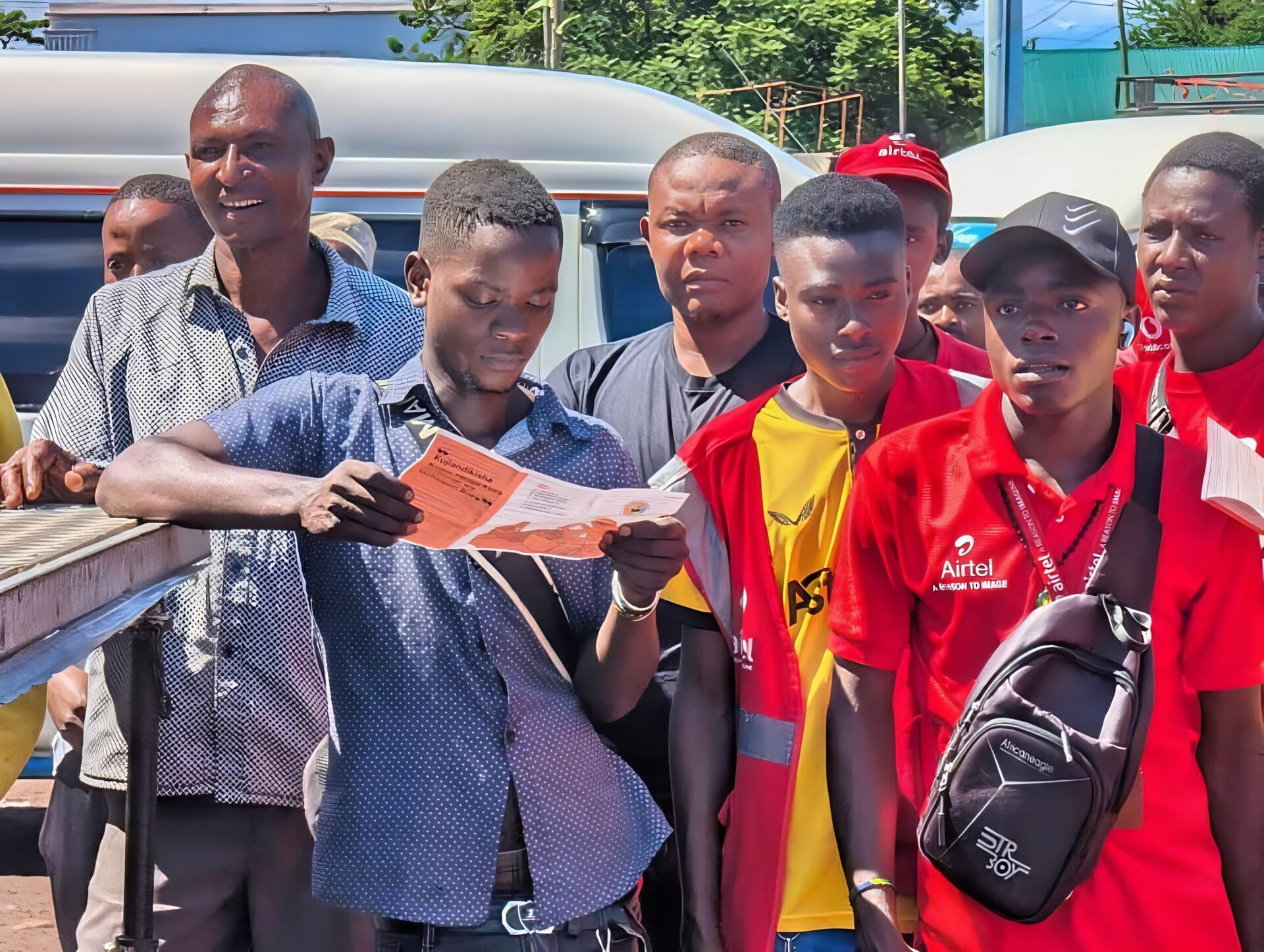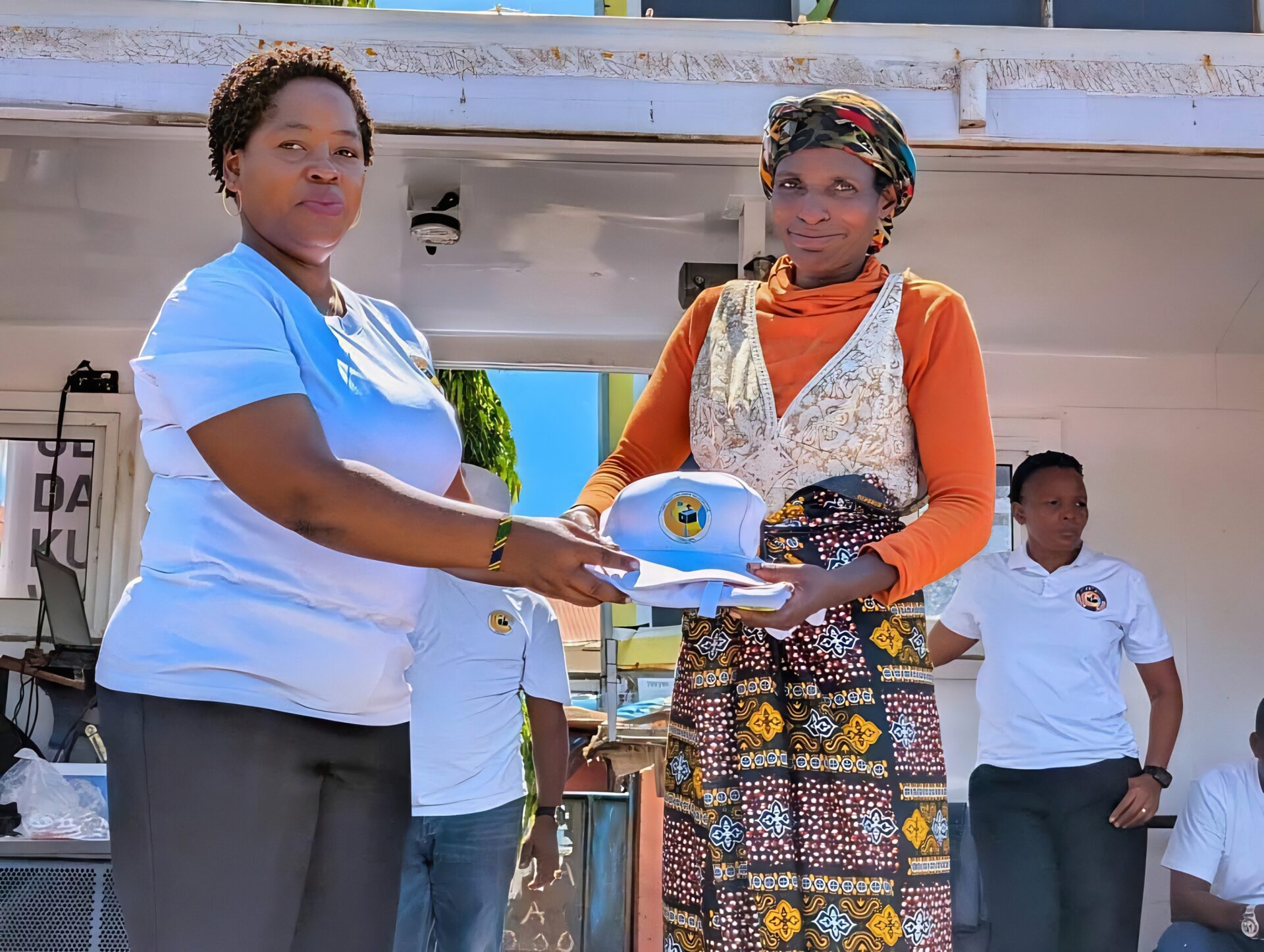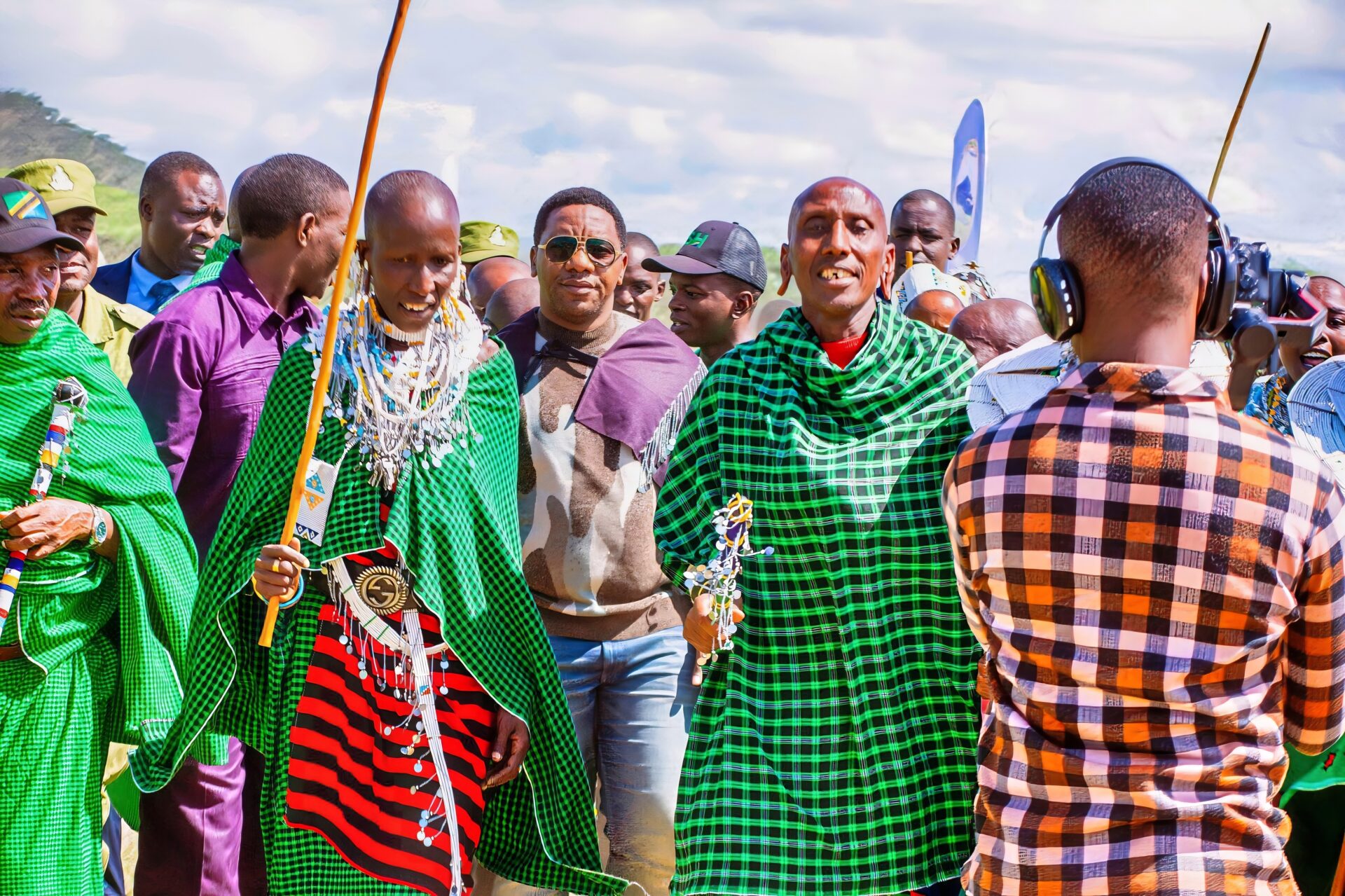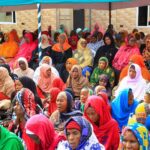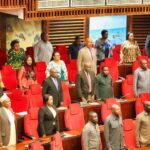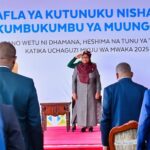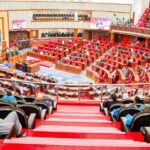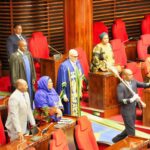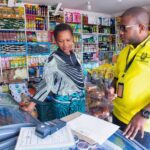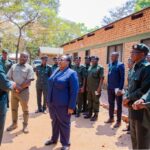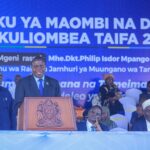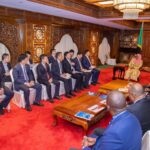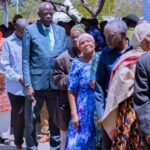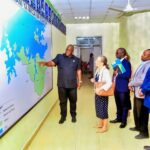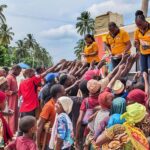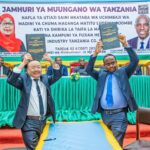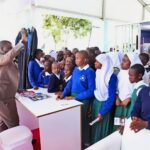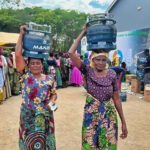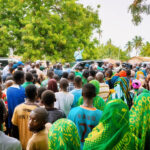Arusha’s Transformation: Bridges, Ballots and the Future of Tanzania’s Northern Hub
Nestled in the shadow of Mount Meru, Arusha is writing a new chapter in its storied history—one where steel bridges and inked fingers symbolise Tanzania’s ambitious development trajectory. As Regional Commissioner Hon. Paul Christian Makonda oversees the critical King’ori bridge construction and a sweeping voter registration drive, this northern gateway faces pivotal questions: Can infrastructure keep pace with economic growth? Will democratic participation translate to meaningful representation?
This in-depth exploration reveals how Arusha’s dual focus on tangible projects and civic engagement reflects Tanzania’s national priorities. From the engineering challenges of monsoon-proof bridges to the logistical hurdles of registering Maasai pastoralists, we examine:
-
The Arusha-Moshi highway’s transformation and its ripple effects on East African trade
-
Voter registration innovations, reaching 331 centres across urban and remote areas
-
Corporate citizenship debates as employers balance productivity and civic duty
-
Leadership symbolism with Makonda’s public registration as a case study
-
Sustainability concerns that will determine whether today’s progress becomes tomorrow’s legacy
Whether you’re an investor monitoring East Africa’s growth corridors, a policymaker studying participatory governance, or simply curious about Tanzania’s development narrative, Arusha’s story offers compelling lessons about balancing steel and suffrage in nation-building.
Discover how one region’s blueprint for progress could shape an entire country’s future—where every concrete pillar and registered voter represents another step toward sustainable development.
1. Infrastructure Boost: King’ori Bridges to Ease Travel and Trade
“A smooth road makes the journey shorter,” goes the Swahili proverb—” Njia laini hufupisha safari.” This adage rings true as Arusha takes a significant leap forward with the construction of the two King’ori bridges along the bustling Arusha-Moshi highway.
A Vital Artery for Commerce and Connectivity
The Arusha-Moshi highway is more than just a tarmac strip; it is the lifeblood of northern Tanzania’s economy. Every day, thousands of commuters, traders, and tourists traverse this route, linking Arusha—the safari capital—to Moshi, the foothills of Mount Kilimanjaro. The highway supports everything from fresh produce deliveries to safari tour operators, making its efficiency crucial for regional prosperity.
However, for years, congestion and deteriorating infrastructure have slowed travel, particularly at the King’ori stretch, where narrow crossings and seasonal flooding have caused delays. The new bridges promise to change that, ensuring smoother, safer passage for all.
Hon. Makonda’s Hands-On Oversight
Regional Commissioner Paul Christian Makonda’s inspection of the construction site this morning was more than a routine check—it was a statement of accountability. By personally assessing the progress, he reinforced the government’s commitment to delivering quality infrastructure. His satisfaction with the speed and standards of work signals that the project is on track, much to the relief of local businesses and residents who have long awaited this upgrade.
Beyond Convenience: Safety and Economic Growth
The benefits extend beyond mere convenience. Improved bridges mean:
-
Fewer accidents: Wider, sturdier structures will reduce the risks of collisions and breakdowns.
-
Faster trade: Trucks carrying goods from farms to markets will no longer lose hours in traffic, boosting local economies.
-
Tourism boost: Smoother transit for safari-goers enhances Arusha’s reputation as a premier travel hub.
A Step Towards Modernising Northern Tanzania
This project aligns with broader national ambitions to upgrade Tanzania’s transport networks. As the country invests in roads, railways, and ports, Arusha’s King’ori bridges stand as a testament to progress—bridging not just rivers, but also the gap between promise and reality.
Yet, as the saying goes, “A bridge is only as strong as its foundation.” The true test will come when the rainy seasons arrive. Will the new structures withstand the floods that once crippled the old crossings? For now, optimism runs high, and if execution matches planning, Arusha’s highway could soon be a model of reliability.
Final Thought:
Infrastructure shapes destiny. With these bridges, Arusha isn’t just paving roads—it’s paving the way for a more connected, prosperous future. The question remains: What other critical links must be strengthened to keep the region moving forward?
Next time you pass King’ori, take a moment to imagine the difference these bridges will make—because in Arusha, progress is being built, one stone at a time.
2. Voter Registration: A Push for Inclusivity
“Unity is strength, division is weakness”—the Swahili proverb “Umoja ni nguvu, utengano ni udhaifu” captures perfectly the spirit of Arusha’s current voter registration drive. With 331 centres now operational across the region, authorities are making a concerted effort to ensure every eligible citizen can participate in shaping Tanzania’s democratic future.
Democracy at the Doorstep
The 22nd May 2025 deadline looms large, but this time, the process has been designed with accessibility in mind. From the bustling streets of Arusha City to the remote villages of Meru and Longido, registration centres have been strategically placed to eliminate the long treks that previously discouraged many from enrolling. At the AICC Hospital Centre in Sekei Ward, where Regional Commissioner Hon. Paul Christian Makonda himself registered, the mood was upbeat—a clear signal that leadership is walking the talk.
Learning from Past Challenges
Previous elections have taught hard lessons. In 2020, some polling stations saw queues stretching for hours, while others in rural areas faced equipment shortages. The current exercise appears determined to avoid repeating these mistakes, with the National Electoral Commission deploying additional staff and digital systems to accelerate the process. As Mama Kondo, a vegetable seller at Kilombero Market, noted while registering: “Last time I spent a whole morning waiting. Today, it took just 30 minutes—this is progress.”
Will Convenience Translate to Participation?
While improved logistics help, more in-depth questions remain. Will the elderly Maasai herder in Monduli find time to visit a centre? Can factory workers in Tengeru afford to take time off? The RC’s appeal to employers was timely, but enforcement may be needed. As Juma, a boda-boda rider in Ngaramtoni, put it: “They say it’s quick, but if I miss a day’s work, my children miss a meal.”
A Test for Tanzania’s Democratic Health
This registration drive represents more than bureaucratic housekeeping—it’s a stress test for Tanzania’s civic engagement. High turnout in Arusha, a political bellwether region, could set the tone for 2025’s general elections. The presence of youth volunteers assisting at centres suggests a generational shift in political participation, though only the final numbers will reveal if this translates to actual enrolment.
The Road Ahead
As the deadline approaches, mobile registration units are now targeting marketplaces and factory gates—a clear nod to the Swahili saying “Mgeni siku mbili; siku ya tatu mpe jembe” (A guest for two days; on the third day give them a hoe). The message is clear: after making voter registration accessible, citizens must now take ownership of the process.
Final Thought:
True democracy isn’t just about casting ballots—it’s about ensuring every voice can be heard. As Arusha’s registration centres hum with activity, one wonders: When the final tally comes in, will we see record numbers, or will some communities still be left on the margins? The answer may determine not just election outcomes, but the very health of Tanzanian democracy.
Next time you pass a registration centre, look closely—you’re witnessing democracy in the making, one ID card at a time.
3. Employers Urged to Support Civic Duty: A Test of Corporate Citizenship
“When elephants fight, it is the grass that suffers,” warns the Swahili proverb “Wapiganapo tembo nyasi huumia.” In Arusha’s bustling economic landscape, Hon. Paul Christian Makonda’s appeal to employers strikes at the heart of this wisdom—when businesses and workers clash over time for civic duties, democracy itself pays the price.
The Reality for Working Voters
Along Arusha’s congested Sokoine Road, where shop assistants, factory workers, and office staff jostle for matatu space each morning, the Regional Commissioner’s plea carries particular weight. For Grace, a seamstress at Naura Springs garment factory, the dilemma is stark: “If I take two hours to register, I lose a day’s wages. But if I don’t register, I lose my voice.” Her story echoes across Arusha’s industrial zones, where daily wage earners face impossible choices between livelihood and citizenship.
Makonda’s Strategic Appeal
The RC’s intervention reflects shrewd understanding of Arusha’s economic anatomy. By targeting employers at the Arusha Regional Business Summit last week, he framed voter registration not as a bureaucratic hassle but as patriotic investment: “Just as we expect workers to be diligent, we must give them space to be citizens.” His argument carries legal weight—Tanzania’s Employment Act guarantees reasonable time off for voting, though enforcement remains patchy.
Corporate Resistance vs Social Responsibility
At Arusha’s Coffee Lodge, where exporters and hoteliers gather, reactions are mixed. “Production targets don’t wait for elections,” grumbles one plantation manager. Yet at the AICC complex, Safari company director Neema Mrosso takes pride in bussing her entire staff to registration centres: “An engaged workforce builds a stable country—good for business eventually.”
The Ripple Effect
The true test lies in sectors where exploitation thrives. Will the call reach the stone quarries of Mererani, where miners work 12-hour shifts? Or the flower farms of Usa River where temporary staff fear dismissal? As the Chaga saying goes: “Mkuki mmoja haughi nyoka” (One spear does not kill a snake)—systemic change requires collective action.
A Model for the Nation
Arusha’s unique position as Tanzania’s conference capital adds symbolic heft. When hotels hosting international summits allow staff time to register, it sends a powerful message. The Arusha Chamber of Commerce’s new “Democracy-Friendly Employer” certification scheme could become a national benchmark.
Final Thought:
Makonda’s appeal exposes the fragile intersection of economics and democracy. As registration enters its final days, watch the tea plantations and curio workshops—where workers balance timecards and civic cards. Their choices will answer a profound question: Can Tanzania’s economic engine run smoothly while fuelling democracy?
Next time you buy Arusha’s famous coffee, ask yourself—did the hands that picked these beans get to register their vote? The answer may reveal more about our democracy than any election result.
4. Leading by Example: Makonda Registers as a Voter – The Ripple Effect of Leadership
“A single stick may smoke, but it takes many to build a fire,” as the Swahili saying “Uki mmoja hautoshi kuwasha moto” reminds us. In Arusha’s bustling Sekei Ward, Regional Commissioner Hon. Paul Christian Makonda turned this wisdom into action when he publicly registered to vote at the AICC Hospital Centre on 20 May 2025.
His deliberate choice to enrol not as a privileged official, but as an ordinary citizen of Arusha Urban Constituency sent a powerful message: democracy begins with personal commitment.
Symbolism in Action
The sight of Makonda queuing alongside nurses, shopkeepers, and students at the registration centre was no accident. In a country where leadership can sometimes feel distant, his visible participation bridged the gap between government and citizenry. By completing the same process as every other voter—fingerprints, photographs, and verification—he demonstrated that no one is above civic duty.
Will the Youth Follow Suit?
Arusha’s young professionals, often disillusioned with politics, now face a compelling challenge. At the University of Arusha, student leader Emmanuel Gideon noted: “When we see leaders taking voting seriously, it makes us rethink our responsibility.” The question is whether this momentum will spread beyond Makonda’s carefully staged moment. Will the influencers of Njiro’s tech hubs and the boda-boda riders of Sanawari now queue up before the deadline?
A Counter to Apathy
Voter apathy has long been a concern, particularly among urban professionals, who dismiss elections as futile. Makonda’s move cleverly counters this narrative. His registration was not just a photo opportunity—it was a strategic strike against the cynicism that keeps educated elites away from polling stations. As the Chaga elders say: “Mwenye kuvuna ndiye aliye panda” (He who harvests is the one who planted). The message is clear: those who skip registration forfeit their right to complain later.
The Ripple Effect
Already, local leaders are emulating the RC’s example. Ward councillors across Arusha are sharing selfies at registration centres, while church and mosque leaders are incorporating civic reminders into sermons. At the bustling Kilombero Market, even the ubiquitous mama ntilie food vendors now ask customers: “Umekwisha kusajili kura?” (Have you registered to vote yet?).
A Test of Authentic Leadership
The true impact will be measured in numbers. If Arusha’s registration figures show a significant uptick—particularly among the 18–35 demographic—it will prove that leadership by example works. But if turnout remains stagnant, it may reveal a deeper disconnect between officials and ordinary citizens.
Final Thought:
Makonda’s public registration was a masterclass in political symbolism, but democracy cannot thrive on gestures alone. As the deadline looms, Arusha’s residents must decide: will they follow their leader’s lead, or will this moment fade like smoke from a single stick? The answer lies not in speeches, but in queues forming outside registration centres across the region.
Next time you pass the AICC Hospital Centre, remember: the most powerful leaders don’t just talk about change—they stand in line for it.
5. The Bigger Picture: Arusha’s Role in Tanzania’s Development – A Litmus Test for National Progress
“When the rhythm of the drum changes, the dance must adapt,” as the Swahili proverb “Mdundo unapobadilika, mchezo unabidi kubadilika” wisely observes. In Tanzania’s development journey, Arusha serves as both the drum setting the pace and the dancer responding to its beat—a dynamic microcosm where national ambitions are either realised or revealed as mere rhetoric.
The Cradle of Tanzania’s Aspirations
Arusha’s dual identity as safari capital and diplomatic hub (hosting the East African Community) makes it Tanzania’s most globally visible region. The ongoing King’ori bridge construction and voter registration drive aren’t isolated projects—they’re performance indicators for President Samia’s broader development agenda. When trucks roll smoothly across the new bridges, they carry not just goods but evidence of Tanzania’s infrastructure commitments. When citizens queue to register, they’re not just signing forms but validating institutional trust.
Economic Crossroads: More Than Just Safari Dollars
Beyond its iconic wildlife tourism, Arusha’s economy tells a deeper story:
-
The Arusha Industrial Park tests Tanzania’s manufacturing ambitions
-
Mererani’s tanzanite mines challenge resource governance models
-
Commercial farms in Karatu measure agricultural modernisation
The new bridges symbolically connect these economic frontiers, just as voter registration links citizens to national decision-making. Together, they answer the critical question: Can Tanzania transition from a raw resource exporter to a value-added economy while maintaining social cohesion?
Governance Laboratory
Arusha’s 331 voter registration centres represent something radical—an attempt to bring democracy to the doorsteps in a country where bureaucratic hurdles often stifle participation. The region’s unique ethnic diversity (from Maasai pastoralists to Chaga entrepreneurs) makes it the perfect testing ground for inclusive governance. As the proverb goes, “Ukiona vyaelea, vimeundwa” (If you see things floating, they’ve been arranged)—the apparent ease of registration masks meticulous planning to accommodate urban professionals and rural herders alike.
The Diplomatic Dimension
With international organisations like the African Court watching, Arusha’s development sends continental signals. Well-maintained highways reassure investors, while transparent voter rolls demonstrate democratic maturity. The region’s success or failure in harmonising infrastructure and governance will either burnish or tarnish Tanzania’s reputation as East Africa’s stable anchor.
A Mirror for the Nation
Arusha’s current transformations reflect Tanzania’s developmental crossroads:
-
The bridges test the government’s ability to deliver mega-projects on time
-
Voter registration measures public trust in institutions
-
Makonda’s leadership style exemplifies the tension between centralised authority and grassroots engagement
Final Thought:
As the afternoon sun casts long shadows over Mount Meru, Arusha stands at a defining moment. The completed bridges will either be monuments to progress or white elephants. The voter lists will either represent an engaged citizenry or expose persistent apathy. In this pivotal region, Tanzania isn’t just building infrastructure and databases—it’s constructing its future.
Next time you see a tourist admiring Arusha’s landscapes, remember—they’re witnessing more than natural beauty. They’re observing a nation’s development experiment in real time, where every paved road and registered voter writes another line in Tanzania’s unfolding story.
6. Potential Challenges: Will Momentum Hold? — Navigating the Roadblocks to Progress
“Smooth seas do not make skilful sailors,” as the Swahili proverb “Bahari tulia haimfunzi mtu kusafiri” reminds us. In Arusha’s season of progress, the true test lies not in the fanfare of new bridges or voter registration drives, but in how the region weathers the inevitable challenges ahead.
Bridges Built to Last? The Infrastructure Stress Test
While the King’ori bridges gleam with fresh concrete today, their real trial will come with:
-
The annual rainy season deluges that turn the Arusha-Moshi corridor into a churning river
-
The exponential increase in truck traffic as regional trade expands
-
The maintenance question—will budget allocations keep pace with wear and tear?
At the Ngaramtoni truck stop, veteran driver Rajabu Mohamed voices a common concern: “These bridges look smart now, but will they survive when ten-ton lorries cross them daily for years?” His skepticism echoes the Meru saying “Mvua ikinyesha, ndio utajua kama nyumba yako imejengwa vizuri” (When the rain falls, that’s when you’ll know if your house was well-built).
Voter Access: Beyond the Urban Centres
The 331 registration centres represent progress, but in:
-
Remote Masai bomas where mobile network coverage fades
-
Informal settlements where street addresses don’t exist
-
Industrial zones where shift workers can’t break for bureaucracy
A Maasai elder in Longido put it bluntly: “For us to register, we must choose between losing goats or losing our vote.” The government’s mobile registration units—like the one photographed at Engarenaibor—are a step forward, but will they reach every corner before the May 22 deadline?
The Transparency Tightrope
Public confidence hangs on two fragile threads:
-
Bridge construction contracts—will expenditure details withstand public scrutiny?
-
Voter roll integrity—can the system prevent ‘ghost voters’ while including legitimate ones?
In Arusha’s Central Business District, café debates reveal growing sophistication: “We don’t just want projects completed—we want to know whose cousin got the tender,” remarks a university lecturer between sips of spiced coffee.
The Sustainability Question
Beyond ribbon-cutting ceremonies lie harder truths:
-
Will bridge maintenance be prioritized after the next election cycle?
-
Can the voter registration system evolve beyond periodic exercises to continuous enrolment?
As the Chaga elders say, “Mchezo wa kuigiza si mchezo wa kweli” (A performance is not the real thing)—the test comes when the cameras stop rolling.
Final Thought:
Arusha’s current progress resembles a safari jeep tackling rough terrain—momentum is exhilarating, but the journey is far from smooth. The bridges and voter rolls may look impressive now, but their true worth will be measured in rainy seasons and election cycles to come.
Next time you cross the King’ori bridges or pass a registration centre, ask yourself: Will these stand as enduring pillars of progress, or become tomorrow’s unfinished business? The answer depends not on concrete or computers, but on the consistency of our collective commitment.
7. What’s Next for Arusha? — The Crucible of Progress
“The wise farmer plants trees he will never sit under,” as the Swahili proverb “Mkulima mwenye busara hupanda miti asiyokaa chini yake” teaches. Arusha now stands at a pivotal moment—where today’s infrastructure projects and voter registration efforts will either blossom into lasting progress or wither under the harsh sun of reality.
The Bridge Between Promise and Permanence
The King’ori bridges, once completed, face their true test:
-
November’s torrential rains, which have historically turned the Arusha-Moshi highway into a treacherous washout
-
The relentless grind of overloaded lorries carrying minerals from Mererani and produce from Karatu
-
The silent creep of corrosion that plagues unchecked concrete
At a roadside mama ntilie stall near the construction site, engineer Joseph Mushi shares his cautious optimism: “The design is sound, but Tanzanian projects often fail in the maintenance phase. Will these bridges still be standing when our grandchildren use them?”
Democracy’s Report Card: The 2025 Elections
The current voter registration drive is merely Act One. The real drama unfolds when:
-
Polling stations open, and we see if improved registration translates to higher turnout
-
Results are contested and the accuracy of voter rolls faces legal scrutiny
-
Marginalized communities like the semi-nomadic Barabaig prove whether they could access registration
A veteran election observer at Arusha’s Blue Pearl Hotel notes: “Good registration numbers mean nothing if polling day becomes a logistical nightmare like 2020.”
The Ripple Effects Beyond Arusha
Arusha’s experiments carry national implications:
-
If the bridges succeed, they could model public-private partnerships for infrastructure nationwide
-
If voter engagement rises, it may pressure other regions to emulate Arusha’s registration strategies
-
If both fail, it could reinforce dangerous cynicism about government promises
As the Meru elders say: “Mlima unapoanza kutoa moshi, usisubiri moto” (When the mountain starts smoking, don’t wait for fire)—early warning signs must be heeded.
The Leadership Imperative
Hon. Makonda’s political future now intertwines with these projects. Will he:
-
Fight for sustained bridge maintenance budgets when new priorities emerge?
-
Champion continuous voter registration beyond the current drive?
-
Resist the temptation to declare premature victory before long-term results are evident?
Final Thought:
Arusha’s next chapter won’t be written in concrete or ink, but in the daily experiences of its people—the trader whose goods now cross the bridges unimpeded, the farmer who finally feels his vote matters. As the afternoon shadows lengthen over Mount Meru, one truth emerges: True progress isn’t measured at ribbon-cuttings, but in the quiet accumulation of kept promises.
Next time you see the bridges or pass a polling station, remember—you’re not just observing infrastructure or democracy, but the living legacy we’re all building together. The question isn’t whether Arusha will change, but whether that change will endure when the headlines fade.
Conclusion: A Region on the Move – Between Promise and Permanence
“A journey of a thousand miles begins with a single step,” as the Swahili proverb “Safari ya kilometa elfu moja huanza na hatua moja” reminds us. Arusha today stands at precisely such a beginning—its hands dirty with the fresh concrete of new bridges, its voter registers thickening with names, its people cautiously hopeful. Yet as the equatorial sun beats down on Mount Meru, the region faces the harder truth captured in another local saying: “Maji ya kifufu ni machache” (The water in a shallow well is always scarce)—true progress requires depth, not just surface motion.
The Dual Legacy Taking Shape
Along the Arusha-Moshi highway, the skeletal frames of King’ori bridges now stretch across riverbeds that have swallowed lesser constructions. These are more than transportation links—they are metaphors for connection in a region historically divided by topography and tribalism. Meanwhile, at the AICC registration centre, the ink-stained fingers of first-time voters like 19-year-old Neema Gideon from Sokon I ward signal something equally profound: a generation claiming its democratic voice.
Leadership That Must Outlast Photo-Ops
Hon. Makonda’s visible presence at both construction sites and polling stations has set a benchmark. But as market traders at Kilombero point out while packing up their evening wares: “Maendeleo si sherehe” (Development isn’t a celebration). The real test begins when:
-
The cameras stop rolling but bridge inspections must continue
-
Election observers depart but voter list audits remain crucial
-
International donors shift focus, but local accountability mechanisms must endure
The Unfinished Symphony
Arusha’s current transformation resembles the intricate Taarab music spilling from Stone Town’s cafés—multiple instruments playing in tentative harmony. The bridges provide the bassline of economic growth, voter registration the melody of participation, but the symphony remains unfinished without:
-
Sustained civic education to transform registered voters into informed electorates
-
Participatory budgeting to ensure infrastructure serves community needs
-
Intergenerational dialogue to balance rapid development with cultural preservation
Final Reflection:
As twilight paints the slopes of Meru in golden hues, Arusha’s people face a defining choice—to see today’s progress as a destination or departure point. The bridges will open, elections will come and go, but the region’s true legacy will be measured in decades, not news cycles.
*When your grandchildren ask what Arusha was like in 2025, will you describe ribbon-cutting ceremonies—or will you point to standing bridges and thriving democratic traditions? The answer is being written now, in the stubborn persistence of citizens who keep showing up, and leaders who dare to be held accountable.*
For in the end, as both the Chaga and Maasai elders agree: “Mti umegoma kukua, si mti—ni mbegu” (When a tree refuses to grow, it’s not the tree—it’s the seed). Arusha has planted good seeds. The coming seasons will reveal their true strength.
Tanzania Media
- Kanyala Ferry Launch: TEMESA’s New Service for 15,000 Sengerema Residents (Mwanza) - 18 August 2025
- Russia-Tanzania Naval Cooperation: How the Smolny Training Ship Boosts Dar es Salaam’s Maritime Security - 18 August 2025
- Tanzania’s ICGLR Commitment: Stabilising the DRC & Great Lakes Region - 18 August 2025

